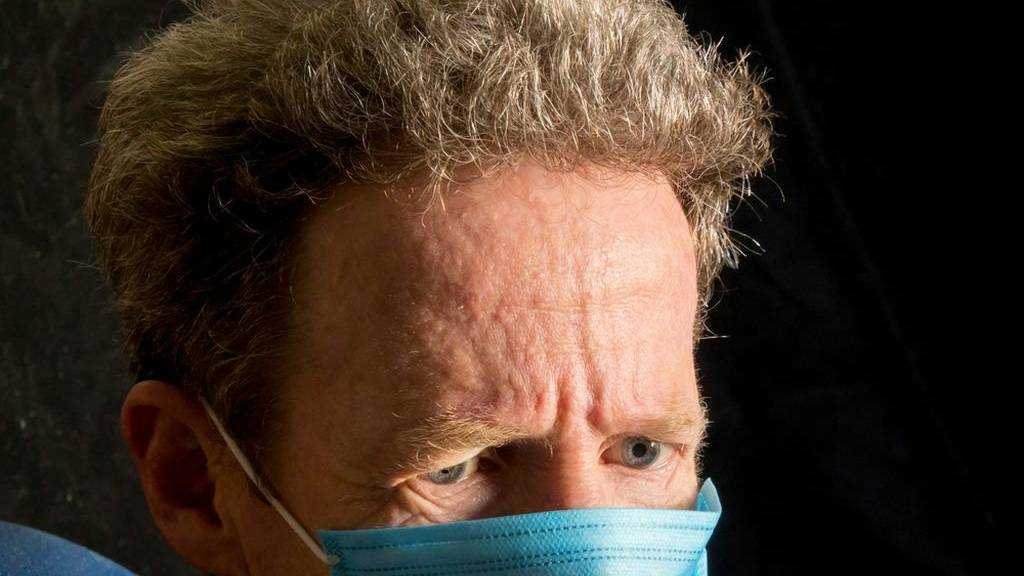For some days there has been a lot of debate as to whether smartphone movement data from people who have been infected with the corona virus should be evaluated in Germany. On the one hand, this could enable doctors and the authorities to identify contact persons who are more affected. On the other hand, there are privacy concerns.
According to the IT portal Golem, Telekom considers "stored data" to be "nonsense" for this purpose. "It takes up to 14 days from the infection to the first symptoms of the disease. Nobody can reliably say who he or she was in contact with during this inconspicuous period of time, which may have caused further infections – apart from our cell phone," explains Helmut Spudich ( "The spy in my pocket"), ex-communications manager at Magenta (formerly T-Mobile Austria), on request from spot on news the considerations. "Our movement data, possibly in conjunction with additional data such as an address book or Facebook, provide very precise information about who we were in contact with – not 100 percent, of course, but with far greater accuracy than our memory."
It would be doable
On the technical side, "this comparison is certainly not trivial, it is certainly too late in countries like Italy. But it is an option that opens up modern technology," Spudich continues. Approach of this kind of surveillance is practically feasible, but "not in the broad sense in the short term. Because tracking that is supposed to curb the spread of an infection only works optimally when all data sources are connected: In addition to operator data, this is primarily Google and Facebook. Their data collection is enormous, puts every data collection in the shade. But apart from legal requirements, the tools for such big data analyzes would have to be created in real time. "
Spudich also sees the whole thing as an opportunity to "clarify whether our society wants to use this possibility for their health protection in the future – and the parameters for how this should be implemented. Unfortunately, science tells us: The next epidemic will definitely come this is the subject of this discussion, the current corona virus is only an accelerator ".
"How many dead are we ready to take such measures?"
According to Spudich, there is "a high level of sensitivity to the intrusion of our privacy in Germany and Austria, and the current data protection regulations would probably make such tracking impossible. However, the laws to limit epidemics provide for very extensive encroachments on our fundamental rights in the event of danger You only care that freedom of assembly is curtailed. " Austria announced on Sunday to temporarily suspend freedom of assembly, as Chancellor Sebastian Kurz (33) said on Twitter.
"These laws have not yet anticipated the current digital possibilities, so we have to have this discussion. How many deaths are we ready to take such measures?" Asks Spudich. "And what does the monitoring look like to ensure that this type of search is done solely for the purpose of health protection and is not also used for petty crime, such as tax evasion, that is discovered by accident?"
Would a possible tracking not also violate the General Data Protection Regulation (GDPR) as long as users do not voluntarily give their consent? "The current legal situation – above all based on the GDPR – would hardly make such a provision possible. However, we give many services such as Google, probably the largest collector of location data, consent to the use of the data, which can be very extensive." , says Spudich. "However, tracking the course of infections would not be possible with voluntary action, because an infected person who gives their consent triggers a search for dozens, maybe hundreds, of people. This only works by order, not with voluntary action."
Like arms trade
Determining locations opens up many practical options for smartphone users, but according to Spudich, almost every app is now collecting relevant data, "regardless of whether they really need it or use it for their commercial purposes that have nothing to do with our benefit. I therefore advise Keeping apps’s access to location data as tight as possible. But the data is traded worldwide, and we’re continually approving this sharing with the “OK” for unread terms and conditions. This trade is like arms trafficking – it should be banned where possible, or are subject to very strict requirements. We need legal protection here. "
The makers of smartphones are also aware of this. For example, in connection with the evaluation of health data, Apple has just recently assured that apps are "critically reviewed to ensure that data sources are legitimate and that the developers of these apps are recognized representatives of government organizations, health non-governmental organizations (NGOs) and medical or educational institutions ". Accordingly, only appropriate developers should submit apps that have anything to do with the corona virus at all. Game apps with COVID-19 as a topic are generally not allowed.
The new book "The spy in my pocket: What the mobile phone does to us and how we can still use it" (edition a) will be published on March 21st and can be pre-ordered. Spudich explains to what extent modern cell phones monitor users, but also shows how they can and should be used anyway.
